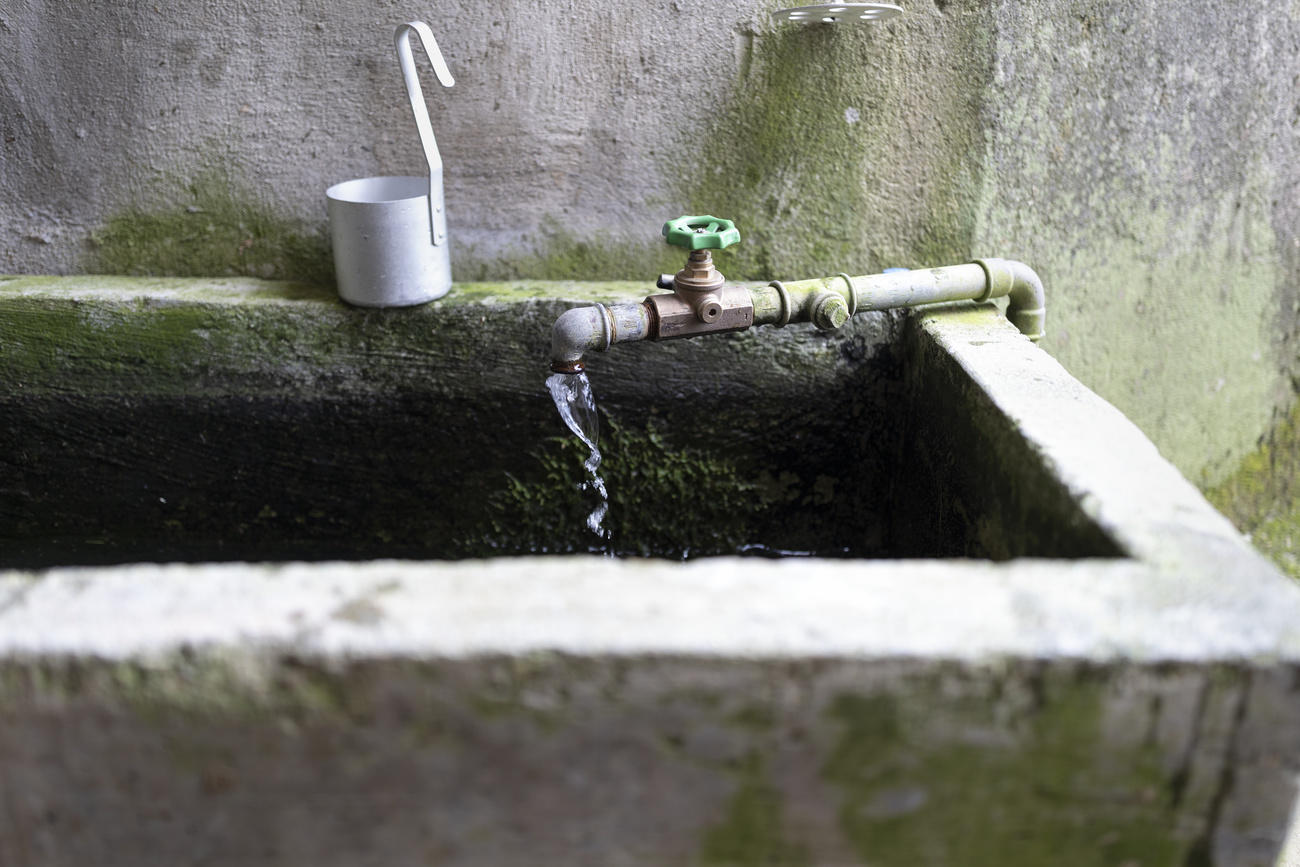
Swiss groundwater quality threatened by pollution

Pollution from agriculture, former industrial sites and landfills is threatening Switzerland’s groundwater reserves, according to a detailed study of water quality.
The water quality studyExternal link from the Federal Office for the EnvironmentExternal link (FOEN), released on Thursday, said groundwater faces the greatest pressures in areas of high farming activity. It stated that groundwater is currently safe to drink but argued for a range of measures to ensure that remains the case.
The study measured water from 600 points around the country between 2006 and 2017.
Levels of nitrates from fertilisers exceeded the legal limit of 25 milligrams per litre (mg/l) in 15% of sample areas in 2014. This increased to 40% in areas where there is a high degree of arable farming – but only exceeded safe levels for drinking in 2-4% of cases.
The concentration of pesticides breached regulations at 2% of measurement points. In addition, traces of banned herbicides were detected, which was attributed to long periods when they remained in the ecosystem even after farmers stopped using them.
Micro-pollutants
The problem is not confined to agriculture. Micro-pollutants from disused industrial and landfill sites are also a cause for concern. In 2014, high levels of volatile halogenated hydrocarbons were detected at 4% of measurement points.
“Groundwater must be protected more consistently to ensure that pressure on our most important drinking water resource does not increase any further and that contamination decreases,” read a FOEN statementExternal link.
In concrete terms, the report called for less damaging agricultural methods, for more wastewater treatment plants and for greater efforts to clean up contaminated sites.
Some 80% of Switzerland’s drinking water comes from groundwater. While there is more than enough groundwater to supply needs, even accounting for climate change, there is continued pressure on this resource from agricultural, industrial and residential areas, the report states.
Next year Switzerland will vote on a people’s initiative “For clean drinking water and healthy food”.
Water use
Despite population growth, drinking water consumption in Switzerland has been declining steadily since the mid-1980s.
The reasons for this are the spread of water-saving technologies, the limitation of losses in the distribution network and the relocation abroad of production facilities of various industry branches.
Currently, a person in Switzerland consumes an average of 142 litres per day. Almost a third of this is flushed down the loo.


In compliance with the JTI standards
More: SWI swissinfo.ch certified by the Journalism Trust Initiative



























You can find an overview of ongoing debates with our journalists here . Please join us!
If you want to start a conversation about a topic raised in this article or want to report factual errors, email us at english@swissinfo.ch.